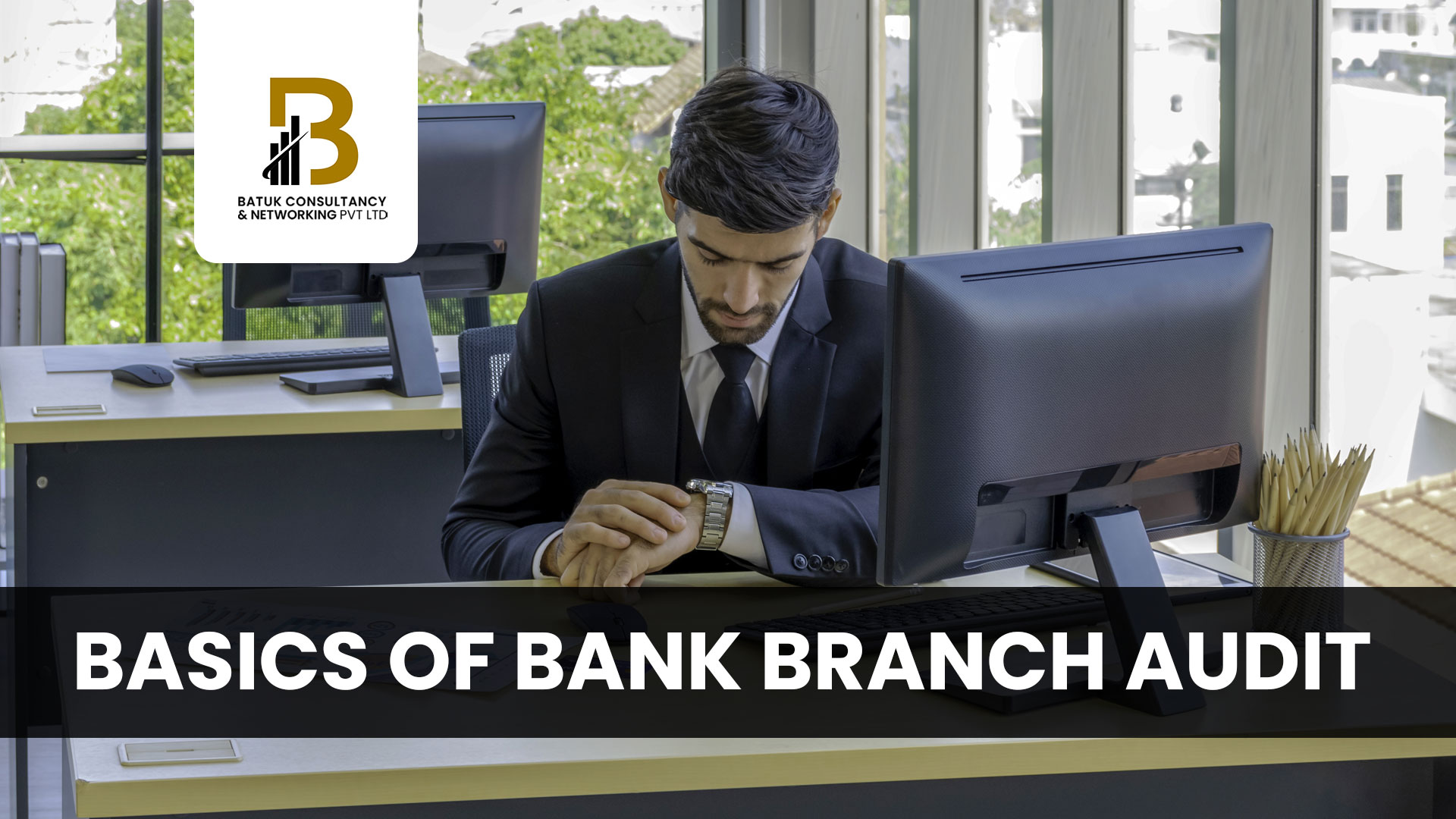Basics of Bank Branch Audit

Types of banking institutions :
- Commercial Banks
- Regional Rural Banks
- Co-operative Banks
- Development Banks (more commonly known as ‘Term-Lending Institutions’)
- Foreign Banks
- Payment Banks
- Small Finance Banks
- EXIM Bank
Out Of these banks, commercial banks are the most widely spread banking institutions in India.
Main Functions of Banks :
- accepting deposits
- granting advances
- Payment and settlement
- Treasury
- Treasury operation involves investment of surplus funds in various types of securities as also investment in specified securities as per RBI guidelines and carrying out forex operations.
- The provisions regarding financial statements of banks are governed by the Banking Regulation Act, 1949
Important Work – Pre Commencement of Audit :
- Acceptance of Assignment
- NOC From Previous Auditor
- Acceptance letter to Branch as well
- Auditor has to collect certain information related to Nature of Branch Business (Like Rural/Forex/MSME)
- Sent letter to branch for the Required Documents and Records.
The auditor needs to study the following:
- Appointment Letter – It is necessary to read the Appointment Letter carefully and duly consider all the terms and conditions mentioned therein, that are required to be followed during the process of the audit. The letter of appointment sent by banks to SBAs typically contains the following:
- Appointment under the Banking Regulation Act, 1949, and the underlying duties and responsibilities of the SBA.
- Particulars of branch(s) to be audited and of the region/zone to which the branch reports.
- Particulars of Statutory Central Auditors (SCAs).
- Particulars of previous auditors.
- Guidelines for conducting audit of branches, completion of audit, eligible audit fees, reimbursement of expenses etc.
- Procedural requirements to be complied with in accepting the assignment, e.g., letter of acceptance, declaration of indebtedness, declaration of fidelity and secrecy, other undertakings by the firm/SBA, specimen signatures, etc.
- Scope of work – Besides the statutory audit under the provisions of the Banking Regulation Act, 1949, the SBA is also required to verify certain other areas and issue various reports and certificates like LFAR, Tax Audit Report, certificates for cash verification on odd dates, Ghosh & Jilani Committee Reports etc.
- RBI Guidelines and Circulars – SBA should read and study RBI circulars, master directions, notifications and the Banking Regulation Act, 1949. This is very crucial and shall help in proper understanding and executing the audit.
- Bank’s Closing Circular – Along with the appointment letter, banks also issue closing guidelines. These guidelines/circulars cover the process and policies followed by the bank. Basic understanding of these circulars is necessary.
- The SBA also needs to have a basic knowledge of allied applicable laws to carry out an effective audit. For example: Indian Contract Act 1872, Negotiable Instruments Act 1881, relevant Stamp Acts, etc.
Steps for Audit of Advances and NPA related matters
- Auditor Should select the Sample Check/test check criteria. the auditor should see that sanctioning, disbursement, review / renewal and monitoring of advances are being done properly. If there are deviations, the auditor should report the same. The auditor should select appropriate sample from all categories of advances.
- The SBA should study the latest Income Recognition and Asset Classification (IRAC) Guidelines of RBI. The auditor should also check whether the bank has correctly classified the advances into performing and nonperforming categories.
- The RBI is now insisting on checking of Central Repository of Information on Large Credits (CRILC) for advances over Rs. 5 Crores, which maintains history of the borrowers from inception.
- Similarly for advances less than Rs. 5 Crores, the RBI maintains the Central Fraud Registry (CFR) which holds all the data regarding frauds reported by banks in India.
- The SBAs should specifically check the review / renewal of advances, availability of drawing power, restructured cases, credit and debit summation in accounts, daily stamping of NPA, evergreening of loans, etc. carefully.
Steps for Audit related to Cash, Housekeeping, Deposits and Other Matters
- The SBA should physically check cash at the branch and at the ATM attached to the branch. The SBA should examine rotation of duties of key management at branch for effective operations. The SBA should examine the limit for cash holding and cash actually held by branch throughout the year.
- Interest accrued on these deposits at year end should be verified on sample basis. Interest paid on deposit should be verified as per the rates applicable from time to time. Unclaimed deposit is very important area where there are chance of fraud. Withdrawal from inoperative deposit account should be checked in depth with proper documentation to ensure that real deposit holder is doing withdrawal on test check basis.
- The “Other Assets” and “Other Liabilities” heads in the financial statements should be reviewed for their correctness. Old balances in ‘other assets and the provisioning required against the same should be carefully examined.
